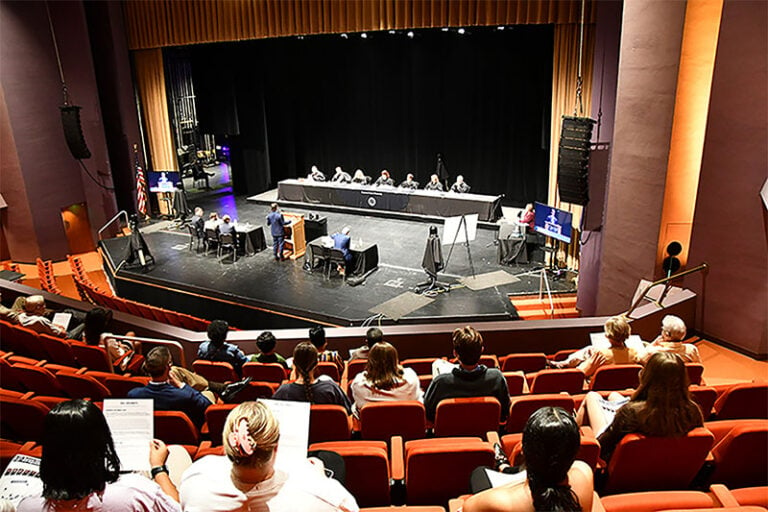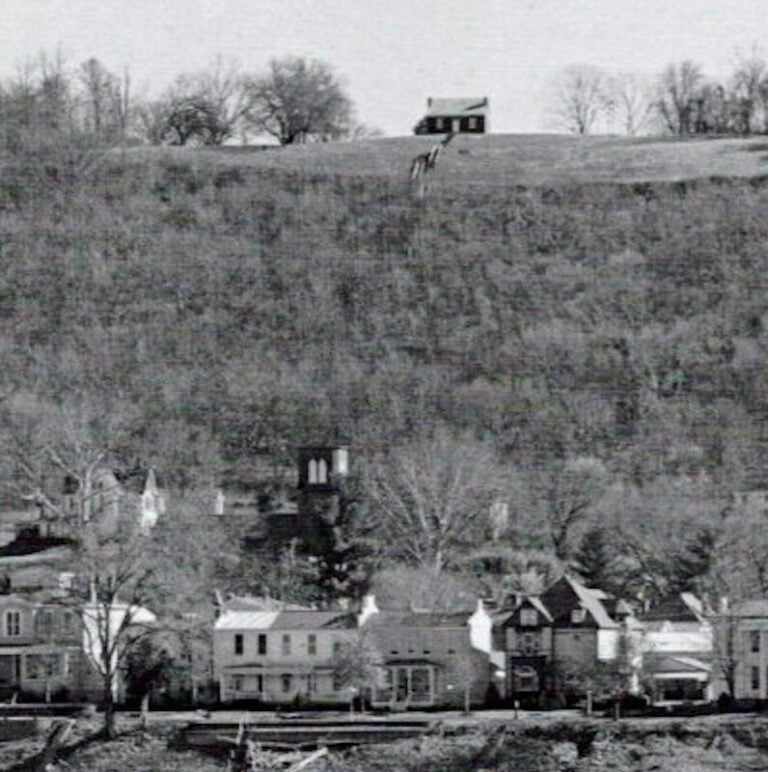(Editor’s note: This is the first of a two-part Q & A with Kentucky historian Dr. James Klotter.)
By Steve Flairty
NKyTribune columnist
Shortly after publishing my first book in 2005 and perhaps feeling a bit more confident than I deserved, I contacted a well-known person who shared my passion for our state, Dr. James Klotter, asking him for a BIG favor.
For sure, he didn’t know me from Adam, but I boldly asked him if we could meet and talk about something I foggily recall as “particular Kentuckians from the past that deserve biographies to be written.” He soon accepted my request, and we met at the Joseph-Beth Booksellers coffee shop, in Lexington. I was a bit nervous, but also pumped, and though he was a wonderful listener, I mainly just let him talk, allowing myself to be invigorated.

So, when two decades later I had a chance to do an email interview with State Historian and Kentucky Writers Hall of Fame member Dr. Klotter for this column, I was again pumped, both because of his profound knowledge and his humble, gentlemanly presence. He’s truly esteemed as a Kentucky treasure and has the receipts to prove it. He’s published at least eleven books, written scores of articles, spoke to groups about Kentucky history all over the state, was Executive Director of the Kentucky Historical Society, and that’s just a small sampling of his accomplishments.
The questions for Dr. Klotter are meant to provide for a studied, credible perspective on Kentucky’s past that might guide in taking the Commonwealth to an even better place in the future.
Flairty: With the benefit of your deep experience in researching, teaching, and writing about our state, what are the most important lessons you’ve learned? How, in your mind, should those lessons instruct Kentucky’s future decision-making?
Klotter: One thing I’ve learned is how much I don’t know about the state’s history and how much all that history is important. A person does not see a doctor without their personal history in hand, nor does an individual go to a tax accountant without their previous financial history. Why should we, as a people, be any different? If we don’t know our past, we have to re-learn everything, repeating the mistakes, and knowing nothing.
If, on the other hand, we know something of the commonwealth’s history, we can follow the examples of positive actions taken by those who came before us. And perhaps, for example, we can see how leaders took advantage of opportunities, despite the criticism, and left a better state as a result—as when Governor Martha Layne Collins brought Toyota to the state or when Governor Bert Combs issued a controversial executive order to give black citizens more rights. In both instances the state took a vital leadership role, one all citizens should emulate. History matters.

Flairty: You obviously see the importance of teaching our children about their Kentucky heritage. Your book for elementary students, Faces of Kentucky, co-authored by your wife, Freda, is a treasure and also quite useful, I believe, for adults looking for a basic historical background about the Commonwealth. How is the state doing in educating our youth about Kentucky, and what suggestions do you encourage to help do it better?
Klotter: Thanks for the kind words about Faces of Kentucky. I wrote most of the text, just as Freda penned most of the excellent Teachers’ Guide, which also was published by the University Press of Kentucky, a great example of how state institutions can work together for the benefit of the commonwealth.
I consider that work one of my best books, along with my Kentucky Justice, Southern Honor, and American Manhood, Henry Clay, and A New History of Kentucky. I wrote Faces to fill a then-existing gap—that is, books written by people who know some state history. For many of the textbooks were cookie-cutter examples that dealt with generalities and stereotypes about the commonwealth. I recall one that featured a long section, with pictures, on canals, that looked suspiciously like the Erie Canal of New York.
But, alas, Kentucky history has been deemphasized, going from a seventh or eighth grade full course in my youth to an “emphasis” in the fourth grade (the last time I looked at least) and a supposed integration in all other grades. But with an “emphasis“ at the fourth grade, the story becomes Daniel Boone, Henry Clay (maybe) Abraham Lincoln, and a discussion of the makeup of government, and little else, with no talk of post-Civil War events and changes in the state’s economy over time. Because Kentucky history is not an independent course, the standards are vague, disconnected, and there is no existing curriculum. As Scott Alvey of the Kentucky Historical Society notes, this leaves teachers to “work it in” to the larger national story, making our state’s history appear as anecdotes or vignettes across multiple years of social studies education.
While elementary-aged students should absolutely have access to history, the nuance and depth that comes with understanding the complexities of Kentucky’s history is better suited for older students. Some states have two full courses on their state’s history; Kentucky deserves at least one such course, preferably at a non-elementary level, so all students know the forces, good and bad, that have shaped them.

Additionally, placing a robust Kentucky history course later in students’ progression toward graduation brings that content to closer proximity to voting and participating in their communities as adults. As Wendell Berry writes:
How can they know one another if they have forgotten or have never learned one another’s stories? If they do not know one another’s stories, how can they know whether or not they trust one another? People who do not trust one another do not help one another, and moreover they fear one another.
History gives us the ability to assess information. Do we want trusting, questioning, knowledgeable adults or do we prefer scared, untrusting, and ignorant ones?
Flairty: Scholars have often come together to rank our greatest presidents. Might you take a stab at ranking Kentucky’s greatest governors? I’ll allow you to supply the criteria for your judgment.
Klotter: This is not as simple as it appears. Why? Because each governor faces unique circumstances, and the best governor may be one who faces a shortage of funds or a very bitterly opposed legislature and still gets things done. But for purposes of this question, I will focus on actual accomplishments. And while there were some strong governors in the 19th century, governing was much simpler then. Early on, the governor didn’t even stay in the capital city full time, for he just didn’t have that much to do! And as late as 1900, the state employed fewer than a hundred people.
In fact, it wasn’t until after World War II and the Earle Clements administration, that the “modern” governorship began. Of all who followed him, Bert Combs (1959-63) had the best administration, due in no small part to an influx of funds from a voter- approved sales tax. He established parks and parkways, KET, a merit system for state workers, a community college system, and an executive order giving the state’s black citizens more rights, for example. And all that in one term, with no really significant scandals.
Other strong governors include, after Combs, Ned Breathitt, Louie Nunn, and Wendell Ford—four good governors in a row—as well as Martha Layne Collins, Paul Patton, and others.
By the way, the worst governor was likely Joseph Desha (1824-28). During his term, he crippled Transylvania, one of the best colleges in the nation at the time, instigated a struggle that almost destroyed the court system and nearly led to a civil war along party lines, and eventually blatantly pardoned his own son after his conviction for murder.


















Typical Jim Klotter! Humble, knowledgeable, thoughtful. Truly the state historian!
Such an excellent and enlightening column! I just savored every word.